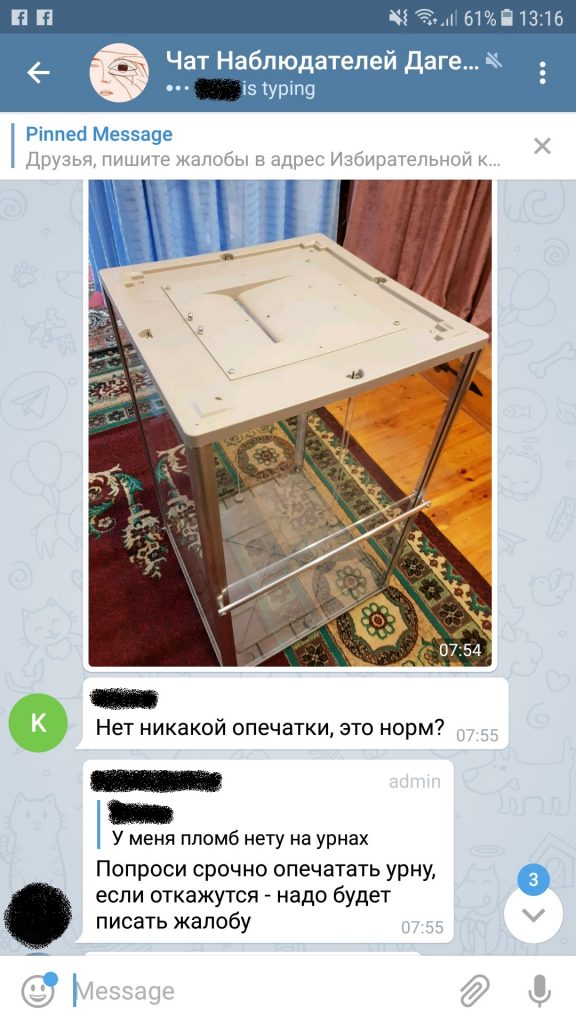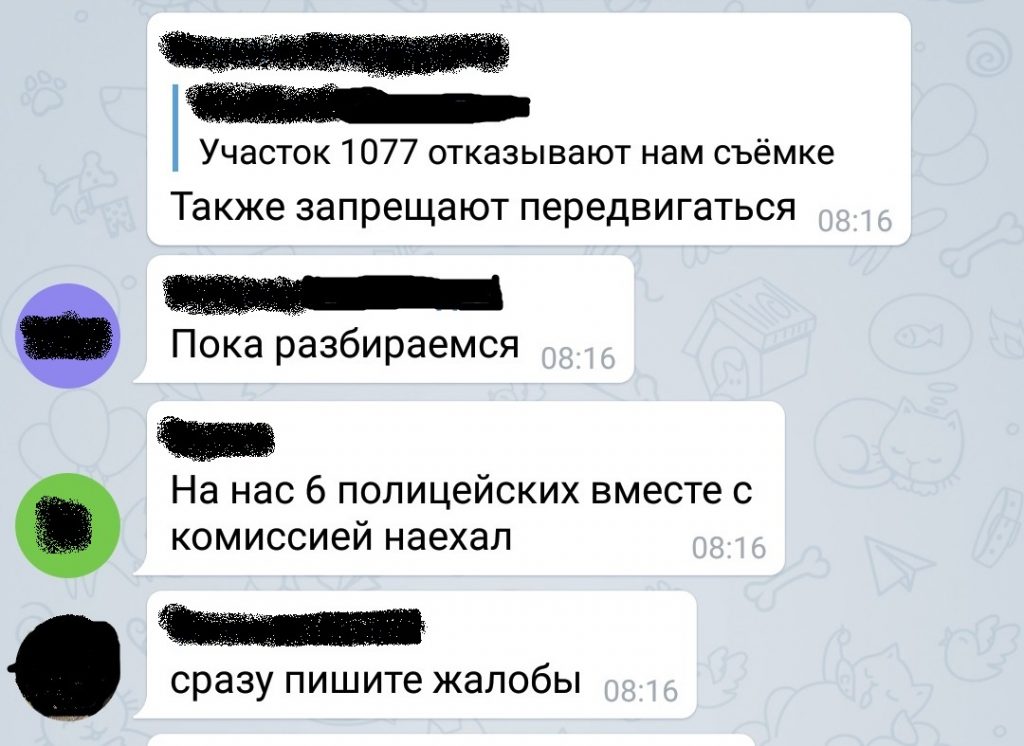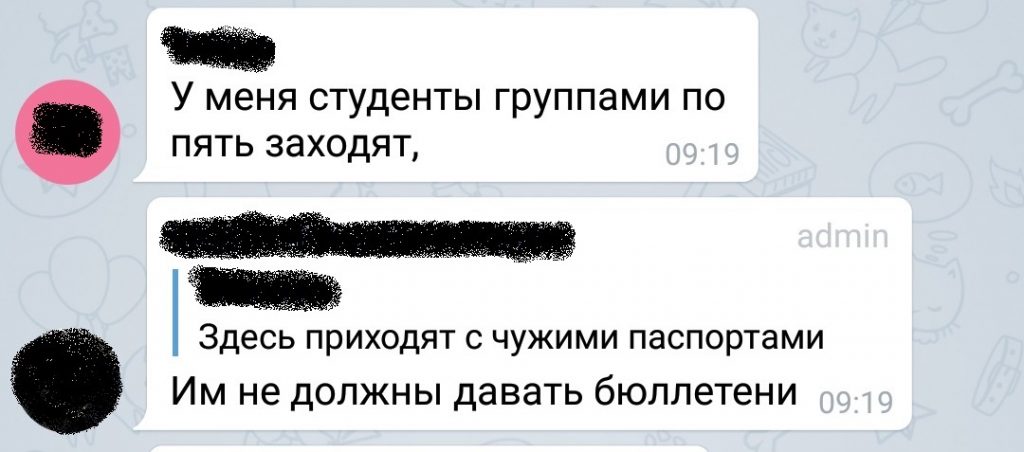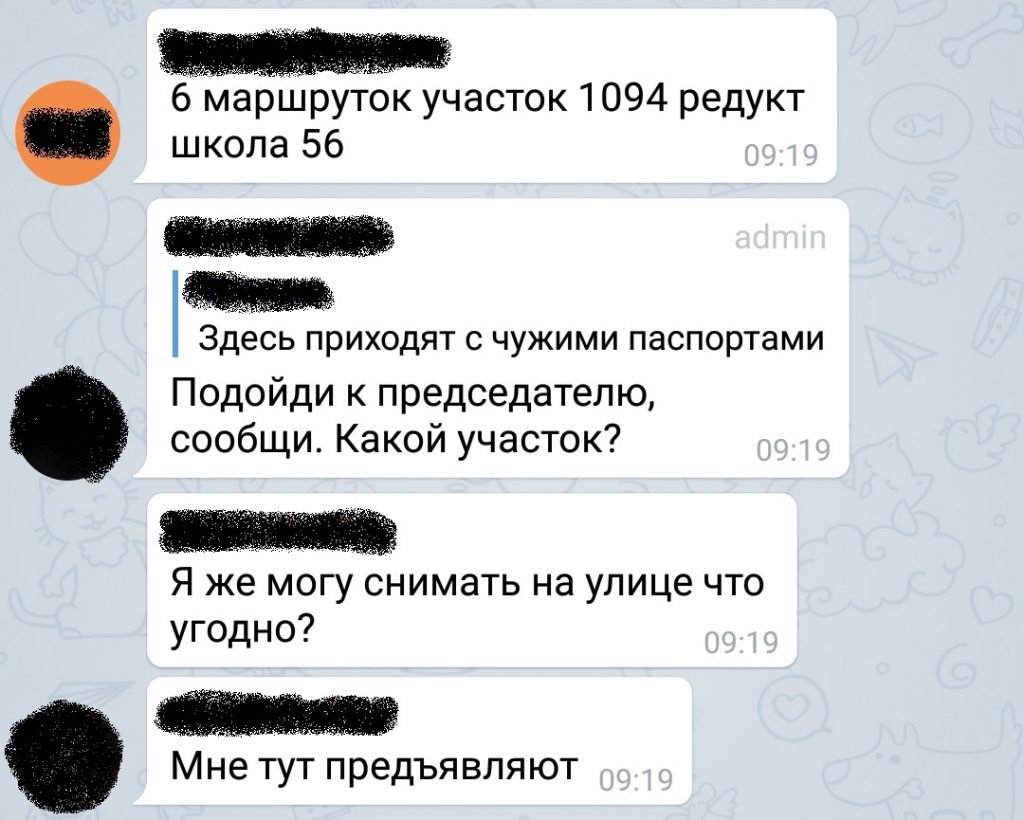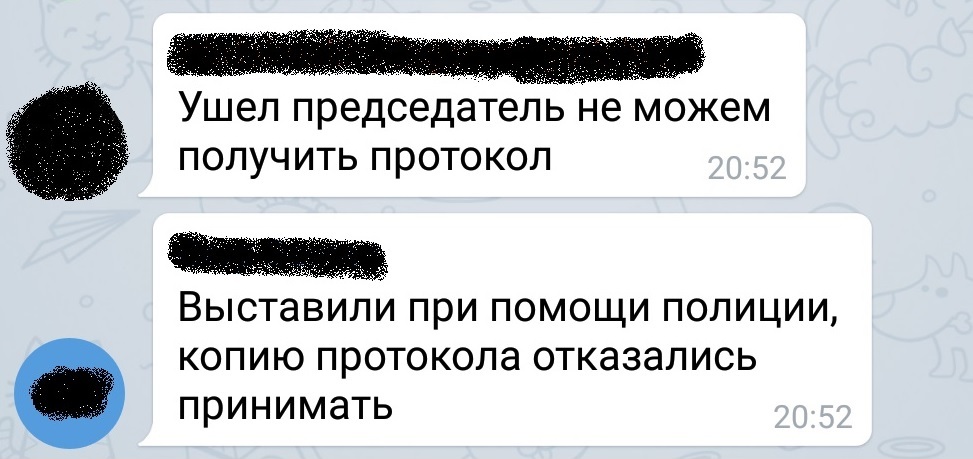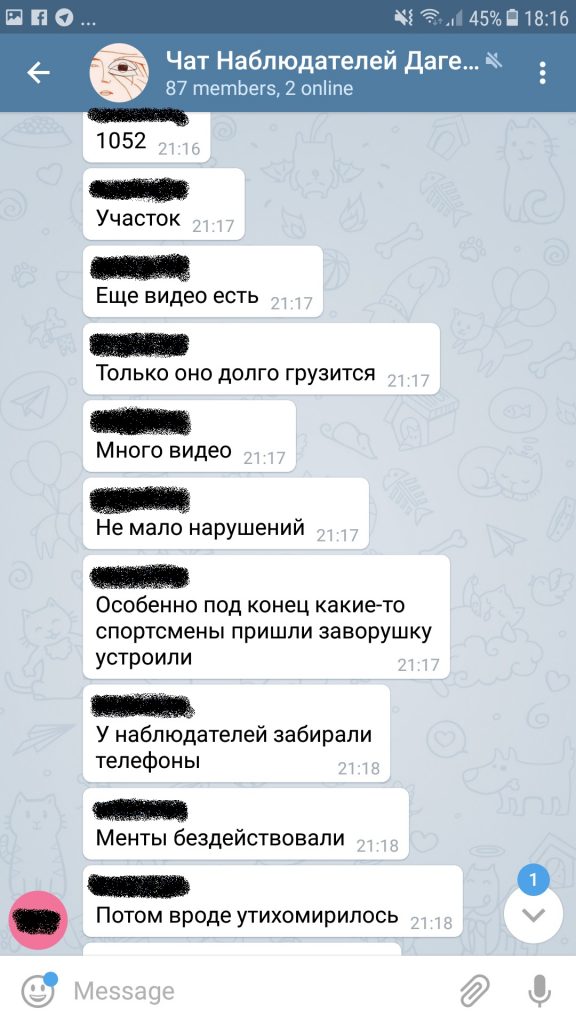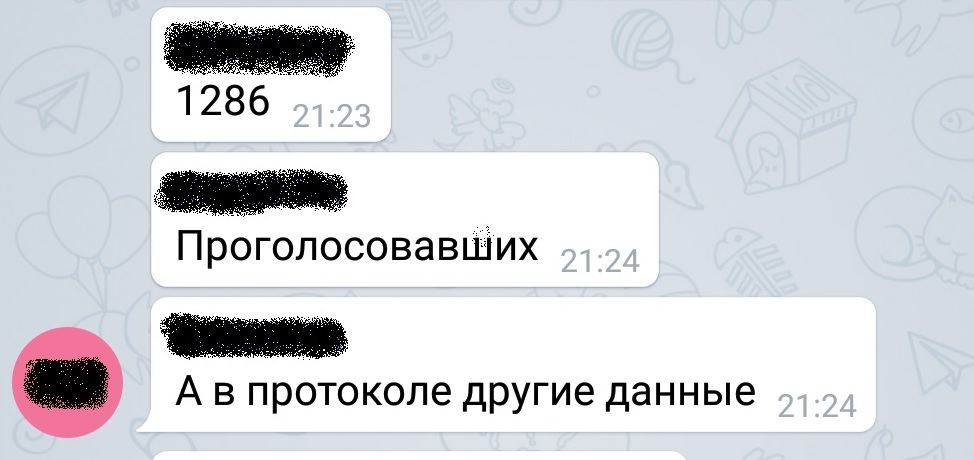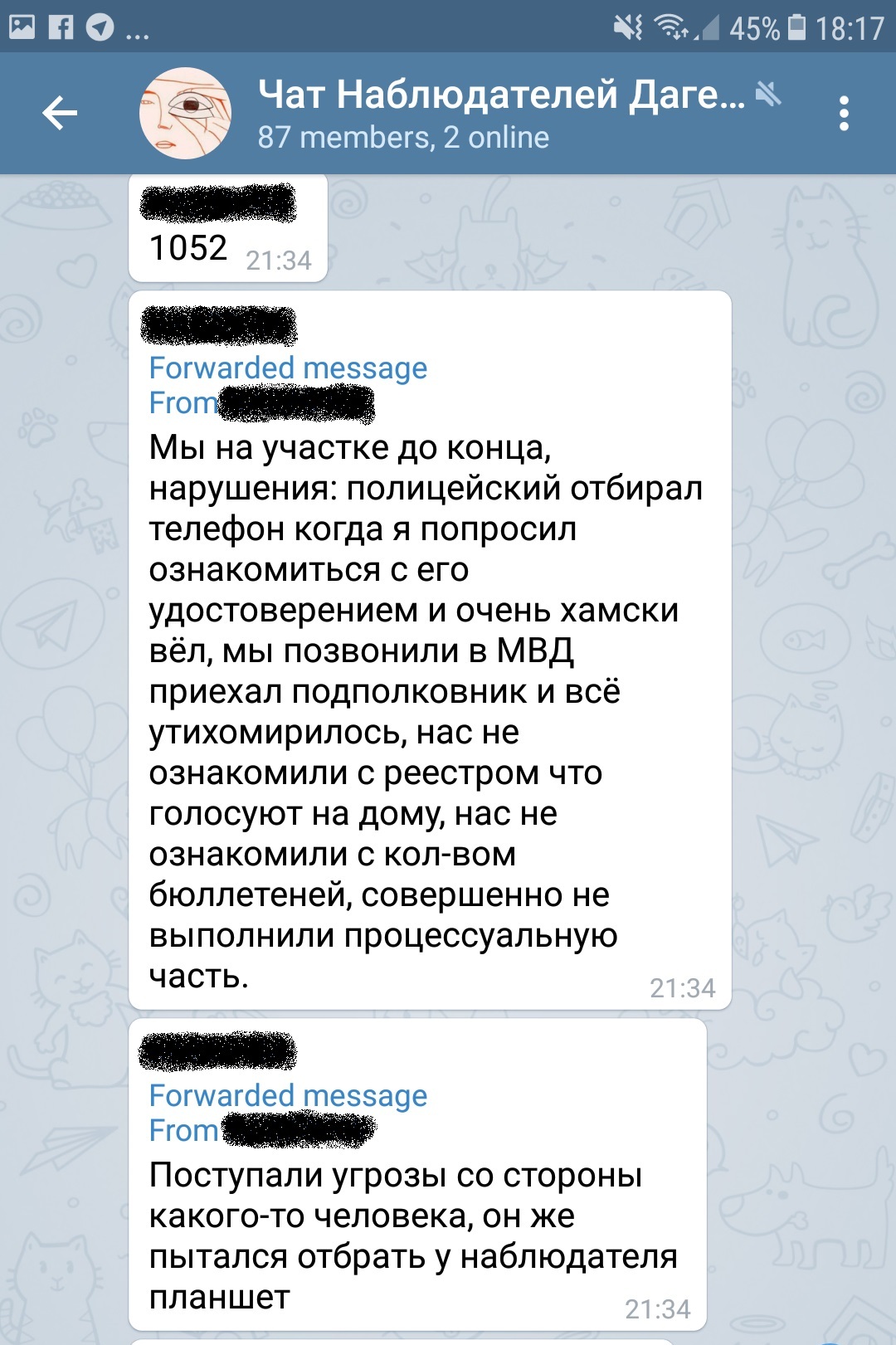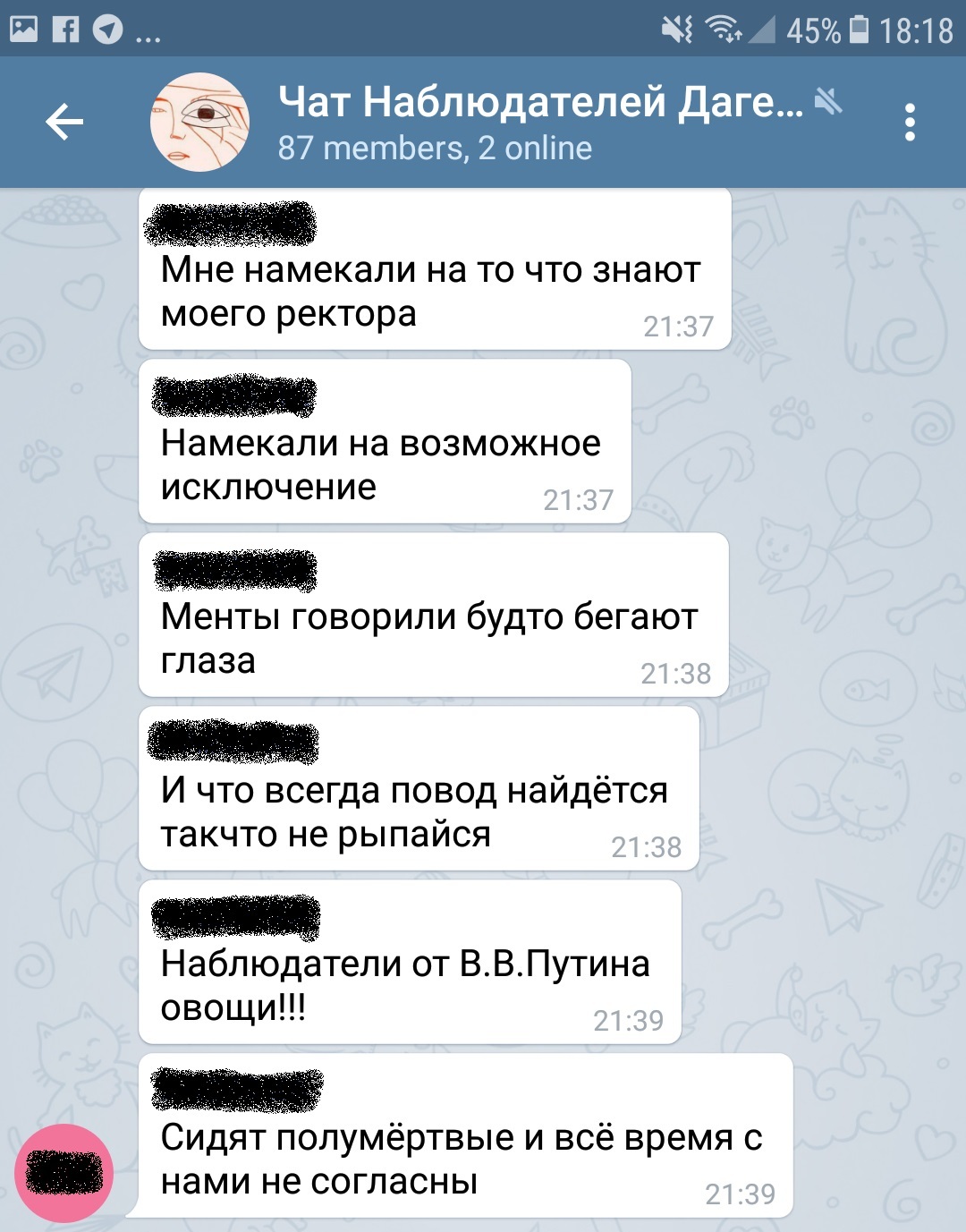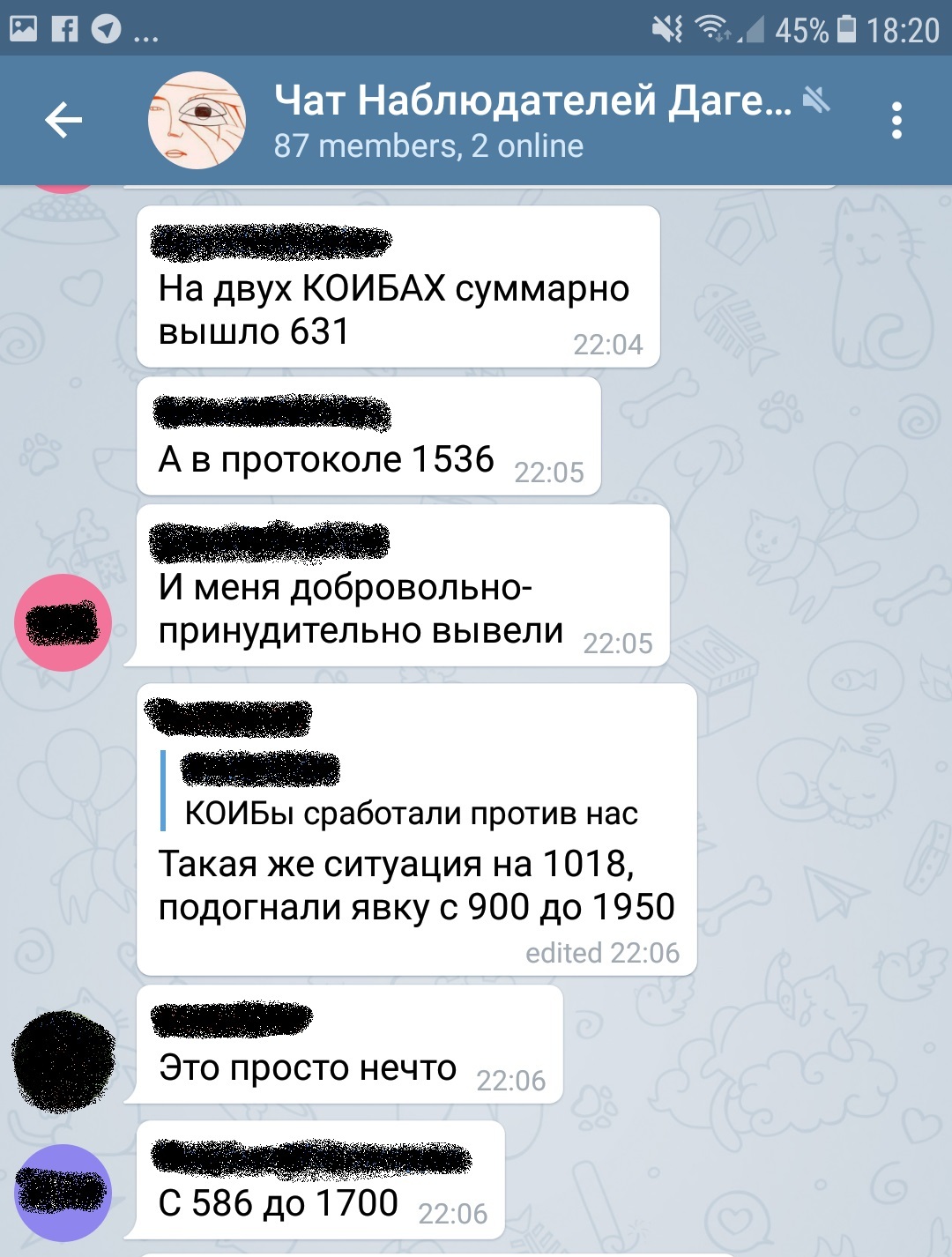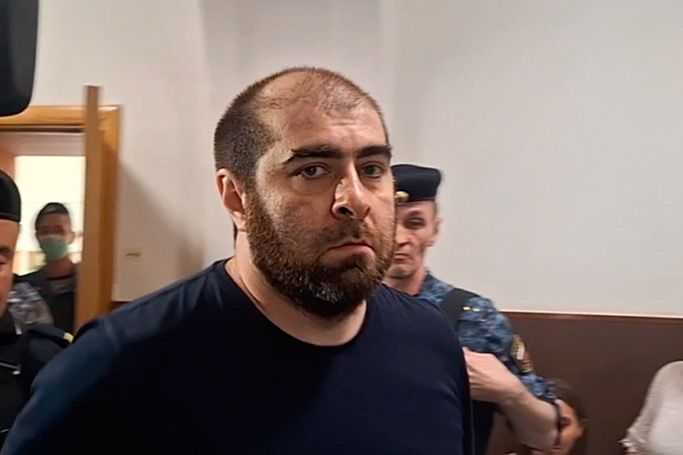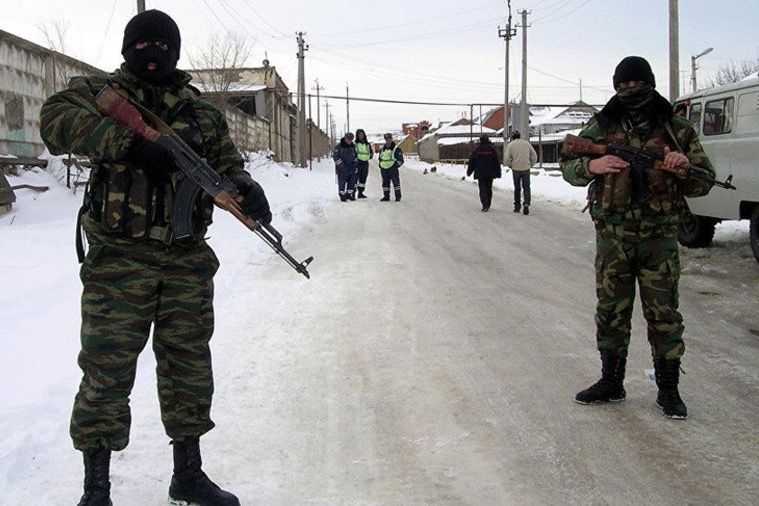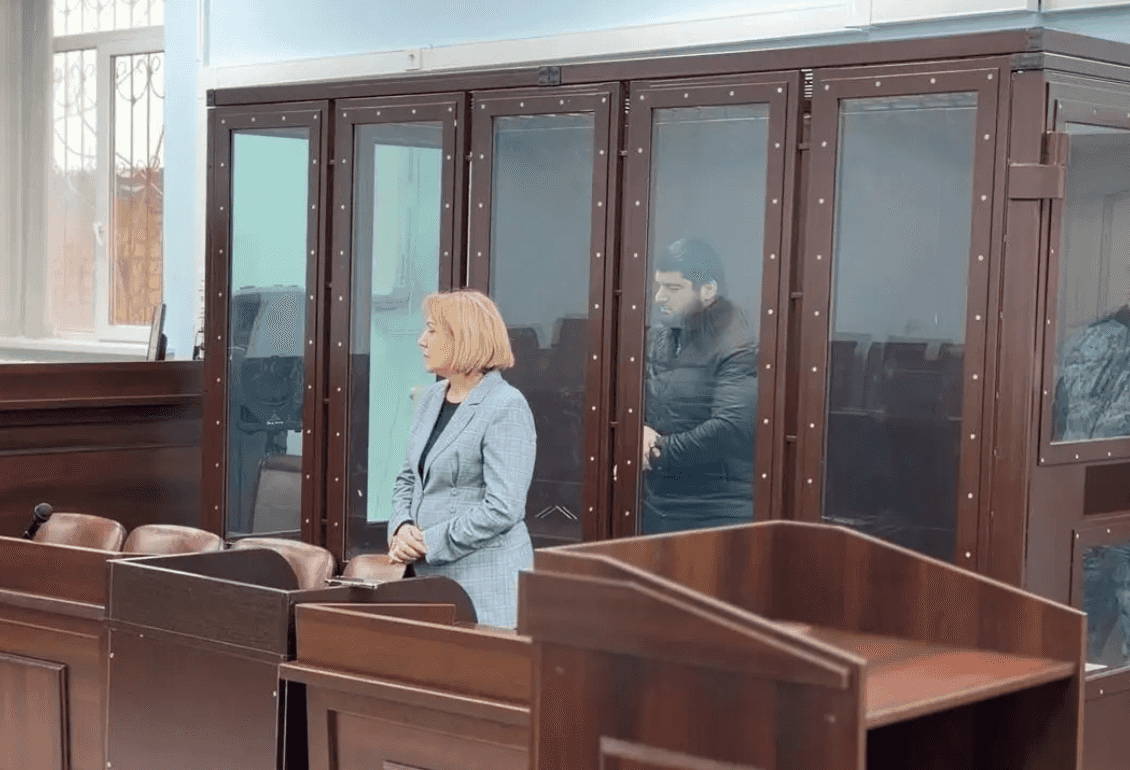
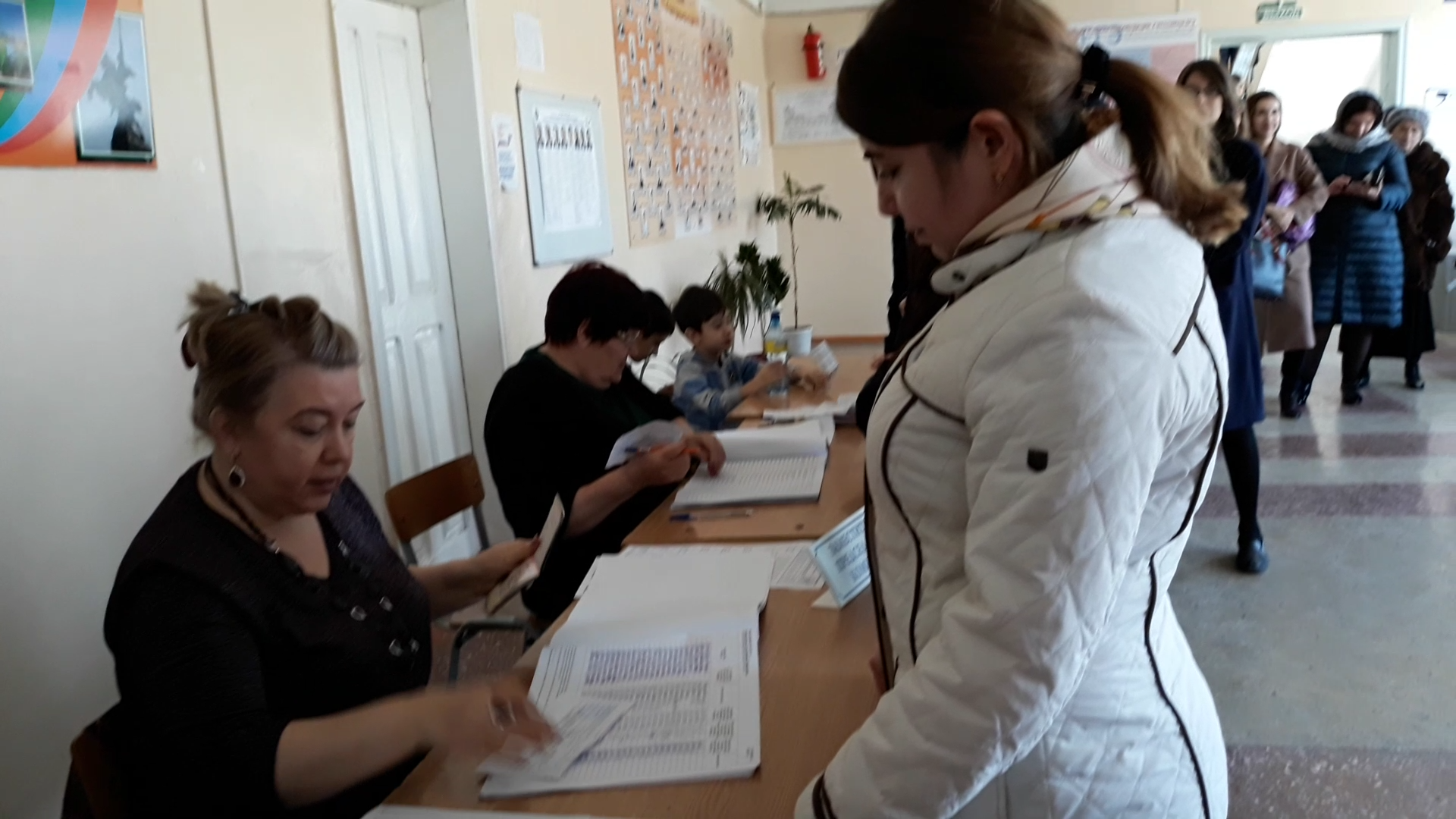
 On Sunday 18 March, Russia held presidential elections. OC Media’s correspondent in Daghestan, Aida Mirmaksumova, was in Makhachkala as a member of the territorial election commission. Vladimir Putin was declared the winner in the elections, with the official results giving 90.73% of votes in Daghestan to him.
On Sunday 18 March, Russia held presidential elections. OC Media’s correspondent in Daghestan, Aida Mirmaksumova, was in Makhachkala as a member of the territorial election commission. Vladimir Putin was declared the winner in the elections, with the official results giving 90.73% of votes in Daghestan to him.
[Read More on OC Media: ‘Landslide victory’ for Putin in the North Caucasus]
This year, for the first time, I participated in my country’s presidential elections not as a voter, but as a member of the Territorial Electoral Commission (TEC) on behalf of presidential candidate Kseniya Sobchak. I was in charge of monitoring Makhachkala’s Leninsky District.
Morning
Voting began at 08:00 Moscow time, and almost immediately, complaints began coming in via Telegram from other observers about their rights being violated.
Several mobile observer groups were organised to go around the city to spots where observers reported violations. The groups included members of TECs and journalists.
The first spot at which our group arrived was polling station N1100 — Makhachkala School N5. Prior to our arrival, an observer had been prevented from moving around the site, and a request for a copy of the final results once they were ready had been refused.
When a member of the Daghestan Election Commission tried to complain to a police officer on duty at the polling station, Dzhamal Ragimov, he responded there was ‘no need to approach me’.
When our mobile group arrived, the chair of the local electoral commission, Liana Ivanova, and members of the commission, accused the observer of interfering with their work, before finally accepting the request.
***
After this district, the group moved to polling station N0998 — in a building of the Rostov Institute of National Economy. Here, an observer had been allowed into the building almost an hour and a half after voting began.
‘It was a misunderstanding. There are no seals [on the papers]. [Now] everything has been resolved’, chairman Naida Ibragimova said and allowed the observer inside.
However, according to paragraph 9 of Art. 23 of the Law ‘On the Election of the President of the Russian Federation’, a seal is not required if an observer is sent by a candidate or his authorised representative.
***
At approximately 09:30, an observer at polling station N1111 (at Makhachkala School N7) noted a phenomenon known as a ‘carousel’. A group of women were caught on video departing one polling station, going behind the school building, and then entering another polling station, N1113, located in the same building.
At the same time, an observer at another station noted a group of people, who he said were students from the Law Academy, being brought to the station by an unknown man.
In a video, the crowd of students can be seen approaching the tables occupied by members of the district election commission. The observer approached the group with a camera to check if they were on the voter lists in the station. In a second video, a woman can be heard preventing him from taking a video near the table.
***
At 10:00, a member of the District Election Commission, Malik Butayev, said he had been struck him in the face an unknown man, at polling station N1072.
When we arrived at the site, Butayev and the attacker were sitting in the office, with the police officers on duty at this site. They called a police car which brought the perpetrator to the Leninsky District Department of Interior.
A little later, we learned from the arriving police officers that the attacker was the chief specialist at the Committee for Minors’ Affairs of the Leninsky District, Magomed Magomedrasulov.
‘I wrote a statement about the attacker on the spot, at the school. Today I called the district department of interior, they told me they still have a case’, Malik Butayev told OC Media on 19 March.
The Leninsky Department of Interior told OC Media they could not give details of developments in the case.
Afternoon
There were two polling stations in Makhachkala school N39 — N1071 and N1072. At the first there was a large influx of voters.
At the entrance to the school, in the foyer, a crowd had gathered. There were women who were taking notes of something, and then telling voters which floor they should go to. One of these women stood on the stairs at the entrance to the school.
On the second floor of the school, another crowd of people gathered, standing in line to see a member of the commission.
OC Media spoke off the record to many women in the queue.
‘My children study at this school. The teacher asked me to vote at this polling station. I am voting here on an absentee ballot’, one of them said.
‘I just don’t want my children to have problems. Why do I need it? It’s a good school, good teachers. They asked me to vote here. I don’t even know where my district is, and so I came here. There is no difference for me where I vote’, another woman said.
Almost everyone standing in the queue had an absentee ballot. A member of the commission added all of them to the list of voters.
A member of the electoral commission accepted the passport of a woman who did not belong to this polling station even though she had no absentee ballot. When questioned about the lack of absentee ballot, the commission member did not react, and the woman said she had ‘forgotten it at home’ and ‘will bring it later’.
For several hours people at the station came and went one by one, in pairs and in groups.
‘It may be a lawful situation, but it definitely causes suspicion. From the history of previous elections, as a rule, when a crowd comes to vote, it means it is a carousel’, lawyer Arsen Magomedov told OC Media.
At about 14:00 the observer group was informed that at polling station N1111 (Makhachkala school N7), an observer from presidential candidate Grigory Yavlinsky had been attacked.
‘We were prevented from recording violations. A crowd of 20–30 people came. I don’t know who these people were. They photographed my registration, they said they would “show me”, they would break my nose, asked me “why are you filming this?” They deleted all my videos of violations’, Zukhrab Omarov told journalists.
According to Omarov, he called for help from the police, but as soon as a group of unknown people took him outside the polling station, police completely ignored him.
In a video taken by Sultan Zagidov’s, a second observer from Yavlinsky’s campaign at the site, one of the observers speaks to Zukhra Norodinova, chair of the district election committee. ‘Why are there strangers in the hall?’, he asked, referring to the group which had just arrived.
To this, she replied: ‘Are you filming again? Did they give you the green light?’ Instead of removing the violators who were disrupting the election, she asked the observer whether he got a permission from those harassing an observer.
***
At 15:30, word came in of an attack on observers at polling stations N1125 and N1126. Both sites are located in Makhachkala School N15.
‘A crowd (30–40 people) of aggressive looking guys with a sporty look came rushing in. There was ballot-stuffing. Someone hit me in the face. Other observers also got their share. We tried to capture all of this on video. My phone was taken away, which was later returned to me, but they forced me to delete the video. They took my video camera, which was capturing what was happening. Took out the SD card, and stole it from me’, Pyotr Repin, an observer at station N1125, told reporters.
According to Repin, the observers from this site will appeal to have the results from this station annulled.
After this, there was a conflict in a neighbouring station — N1126. According to Viktor Zotin, an observer from this site, he went to a neighbouring station to find out what had happened there, but when he returned he saw a crowd of unknown men near his colleague.
‘I asked what was going on, I was grabbed by the hand. I asked a police officer to look at what was happening, and after this everything started: they pushed me and dragged me along the corridor. While I was being dragged, the ballots were being stuffed’, Zotin, an observer from candidate Grudinin told OC Media.
The ballot-stuffing Zotin spoke of was recorded by CCTV cameras. The video clearly shows women monitoring what is happening in the foyer and the corridor, and taking new ballots while others throw them in the ballot box.
On 19 March, Daghestan’s Election Commission annulled the results from polling station N1126.
***
Two women from Leninsky District told OC Media that both of them were forced to take absentee ballots at their polling stations and vote in stations near their places of work. The women received the necessary documents, but on the voting day, they learned that despite absenting themselves from their own districts, their names were still on the voter lists there.
Evening
At 20:00 Moscow time, when the voting officially ended and counting began, we again began receiving notifications about violations of the rights of observers.
Several of them were being ejected from polling stations, forbidden from filming the counting, and forbidden from moving around the polling stations.
According to observers from polling station N1065 (Daghestani Pedagogical University), the chairman of the commission, Gadzhimurad Abdullayev, left the site without issuing a copy of the results to observers.

Surveillance cameras recorded ballot-stuffing in polling station N1112, after 20:00 when the voting was officially over. A member of the commission here was stuffing ballots into the electronic optical scanner for more than half an hour.
After the elections
The following day, on 19 March, a member of territorial election commission for Sovetsky District in Makhachkala from Sobchak Murad Kasumov’s campaign reported that he was called by the chairman of station N1123, Arsen Ramazanov, who offered to meet and ‘deal with him’.
Председатель УИК1123 Рамазанов звонит с угрозами нашему наблюдателю Мураду Касумову, который вчера работал в мобильной группе. Предлагает встретиться и разобраться с ним
Звонит с номера +79282862222
Предлагаем журналистам позвонить Рамазанову с просьбой прокомментировать угрозы— Наблюдатели Дагестана (@DagestanElect) March 19, 2018
Observer Amina Damadayeva told OC Media that at polling station N1052, electronic counting machines counted 1,286 ballots, but the final results there gave 1,438 votes for Putin.
Patya Amirbekova, an observer at site N1055, told OC Media no one had issued the final results to them. According to her, after counting the votes, only one member of the commission remained at the polling station, who gave them ‘some papers’, but not the official results.
The results of the presidential elections have been declared invalid in four stations in Daghestan: in Makhachkala (stations N1126 and N1073), in the town of Dagestanskiye Ogni (station N380) and in Suleyman-Stalsky District (station N1284).
Not a single result corresponds to what observers found
Several coordinators monitored the work of the Daghestani observers. Political scientist Anna Vellikok was one of them. She had previously worked in Daghestan during the Duma elections in 2016. According to Vellikok, unlike two years ago, this time there was ‘an innovation with the additional voter lists’.
If the voter is registered in a certain district but their name is not in the list, their name is hand-written into an additional list. According to the rules, additional lists are drawn up on the spot. If a voter does not belong to the site where they want to vote, they must present an absentee ballot to the member of the commission. The ballot must remain with the commission. But during the 18 March elections, ballots were not taken from all voters, which is a violation, because in this way, one person can vote multiple times.
Vellikok notes that the ‘large turnout and most of the violations were with additional lists’, as it is difficult from the additional lists to follow the number of times a voter cast their vote.
According to Vellikok, the proper procedures for vote counting were not observed at almost any polling stations, and in many areas, the figures in the final results did not correspond to the figures recorded by the observers.
‘The main violations in these elections were fraud with additional lists of voters, “carousels” that used the additional lists, rewriting the results, non-compliance with the counting procedure, and, of course, ballot-stuffing. In past elections, we were able to obtain honest results from a larger number of stations, which reflected real turnout and actual voting data. Now there is not a single result which corresponds to what the observers found’, Vellikok said.
